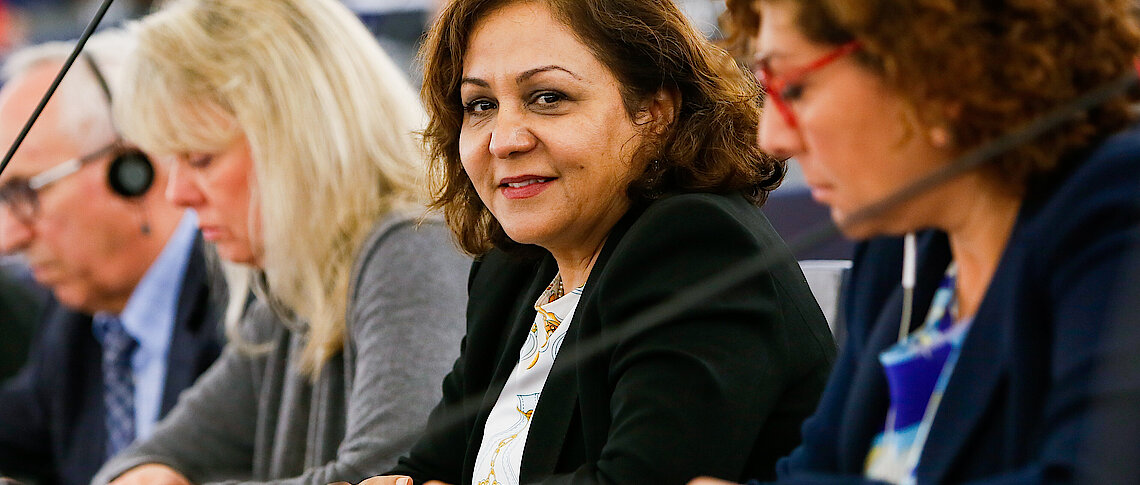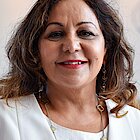When I was first elected to represent the West Midlands for the UK Labour Party, I became the first female, Asian Member of the European Parliament. In fact, I became the first female, Asian member of any parliament in Europe. This was not in the 70s or the 80s. The year was 1999.
Between that time and the present day, the European Parliament continues to be dominated by those who are white and male. Of the 751 MEPs currently serving in the European Parliament, only around 12 would identify themselves non-white. And half of us are from the UK. So, after Brexit, it is plausible to suggest that number will reduce to just six. That would be less than one percent of the total number of MEPs.
Clearly we have a democratic deficit. Europe is a place of incredible ethnic diversity. Limiting decision-making to such a narrow section of society restricts our ability to solve problems. Since the EU referendum in summer 2015, hate crimes have spiked in the UK. Sikhs from my community – along with Muslims – often face the brunt of this verbal and physical violence. How can we expect minority communities to feel a part of mainstream society if they are not properly represented? How can their voices be heard if no one in the chamber recognises their perspective?
When I first came to Brussels, other members simply would not believe that I am a British MEP. Because of my skin colour, they assumed I was either Spanish or Greek. Occasionally, this still happens today. For some, the fact that I am both proudly British and Asian simply doesn’t compute, which is strange for members of a political project based on the mixing of identities. We talk a lot about racial inequality in the European Parliament, but there is very little real action. Positive discrimination does not exist here. In fact, the opposite is true.
When I first came to Brussels, other members simply would not believe that I am a British MEP
Working in the European Parliament means having to work with far-right and sometimes openly racist politicians. Fortunately, the fact we mostly sit according to our political groups and most Eurosceptic politicians do as little legislative work as possible, means I manage to avoid them most of the time. However, on some occasions, like earlier today, I have to sit next to a member of a far-right party for committee work. I like to think I have a thick skin, but to be honest, every time this happens I feel uncomfortable. Many of these members do not recognise my right to be sitting there at all. One occasion that sticks out in my mind was on a flight to Strasbourg for the monthly plenary session. A member of a far-right party sat down next to me. She looked me up and down, then immediately asked to be moved seats. I did not get a chance to ask her why…
The hidden (and not so hidden) barriers to entry
I wish parliamentarians would spend more thinking about why more people from ethnic minorities do not get involved in politics, at both the national and the European level. I believe it is substantially more difficult to win representation for minorities at the European level than it is in Westminster, the seat of the British Parliament. The first reason for this is a complete lack of awareness about the EU in many communities in the UK. It is ironic that it is only since the EU referendum has there been real interest in what is going on in Brussels.
The money required to the run a campaign to be selected as candidate for the European Parliament is prohibitive. It is nearly impossible unless you are very rich, or have trade union backing. To send every one of your potential 20,000 constituents a letter costs around £10,000 (€11,300) alone. The process is not just expensive, it is also time consuming. During a three or four month period, you will have to visit every constituency party in your region, to get known by local activists. In the West Midlands, I represent an area spanning 59 constituencies, but there are even more in London. The cost and time required to run can be especially difficult for marginalised ethnic groups.
Also, the physical distance between the region you represent and Brussels is another barrier for entry, especially for those who come from more traditional, family-focussed, minority communities. The fact that MEPs have to spend a week of every month in Strasbourg does not help either. It is a difficult issue to solve, but keeping the parliament in just one place would make the becoming an MEP more accessible to everyone, not only ethnic minorities, but also those with disabilities.
It would be wrong to write about being an ethnic minority member without touching on the one experience common to all non-white politicians: online abuse. It is nothing new. In an earlier term, my YouTube and Facebook accounts were targeted by a systematic campaign of abuse from the British National Party. The vitriol they posted is too extreme to print, but it’s certainly not unique. Abuse towards female members of ethnic minorities is particularly bad. My colleague and friend Diane Abbott, the UK’s shadow Home Secretary, received nearly half of all the abusive tweets sent to female MPs in the most recent general election campaign.
While there are particular difficulties with the European Parliament, at the national level we face many of the same problems. I chair Sikhs for Labour, which I set up a few years ago to close the gap between the Sikh community and the UK Labour leadership, as well as to win representation for Sikhs in the Parliamentary Labour Party. It’s astonishing that it has taken until 2017 for first turban-wearing and first female Sikh MPs to arrive in Westminster.
There is more that can be done to involve people from all backgrounds in the EU political process, but as a Brit reluctantly saying goodbye to the EU at the end of this mandate, I must leave the fight to others. However, I will say one more thing. The future of the EU, a project I wholeheartedly believe in, depends on an increased connection between the people of Europe and the institutions in Brussels. For the EU to remain strong, as we brace for the turbulence of populism and the challenges that come with globalisation, we need to build a Parliament, a Commission and a Council that look like the people they represent.






